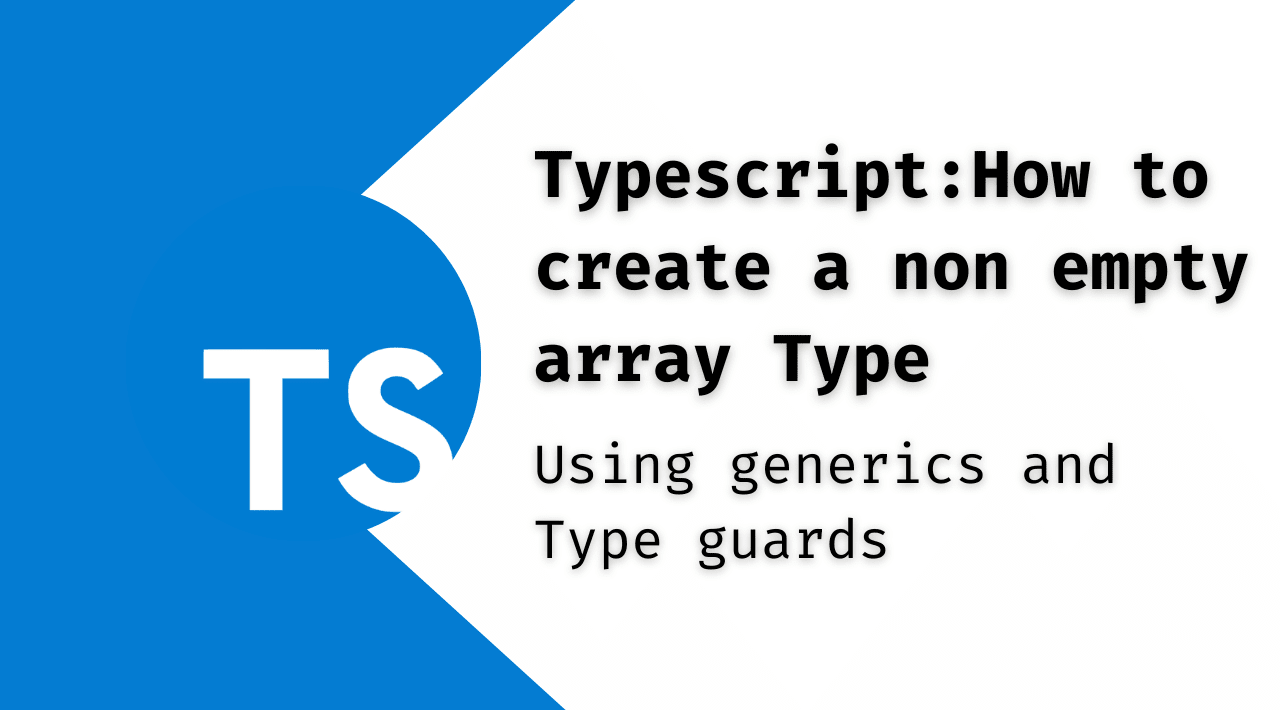TypeScript has some powerful features, and one of those is conditional types. With conditional types, you can create type-level algorithms to perform more complex tasks, like pattern matching and type inference. By combining this with your existing knowledge of TypeScript, you can create some impressive types and tools.
In this blog post, we’ll learn how to create a simple query string parser at the type level using conditional types.
Creating a Simple URL String
First, we need an example URL string that contains a set of query string variables. Let’s create one:
sponsor

Tu producto o servicio podría estar aquí
const URL = "https://example.com?foo=bar&baz=qux";
Defining a Type to Extract the Query String
Now, let’s define a new type ExtractQueryStringFromUrl that will use typeof to get the type literal value of the URL variable. We’ll then use the extends keyword to create a condition for our conditional type. We’ll use a template literal to describe the shape we’re looking for: a string that starts with https, followed by any string, then a question mark and any subsequent string. If that condition matches, our conditional type will return true or false.
type ExtractQueryStringFromUrl = typeof URL extends `https${infer QS}` ? true : false;
Let’s hover over the ExtractQueryStringFromUrl type to see the type returned, and it should be true.
Using Type Inference to Extract the Query String Part
We want to extract the query string part here. To do that, we’ll make use of type inference with the infer keyword. This keyword can only be used as part of a conditional type and will create a type variable, in this case named QS. We’ll return QS as part of the true side of the conditional and check the type value returned.
type ExtractQueryStringFromUrl = typeof URL extends `https${infer QS}` ? QS : "error";
Now, when we hover over the ExtractQueryStringFromUrl type, we should see the extracted query string part: "?foo=bar&baz=qux".
Making Our Type Reusable with Generics
Our current implementation is tied to the URL variable. Let’s make it reusable! We can achieve this using generics. You can think of generics like a function type that accepts an argument, in this case named S.
type ExtractQueryString<S> = S extends `https${infer QS}` ? QS : "error";
Now we have a reusable type that can extract the query string part of any URL string. Let’s test it by creating two test types:
type Test1 = ExtractQueryString<"https://example.com?param=value">; // "?param=value"
type Test2 = ExtractQueryString<"http://example.com?param=value">; // "error"
And there you have it! We’ve created a type utility that can extract the query string part of an URL string by using conditional types, pattern matching against a string literal, and type inference.
Conclusion
Conditional types are a powerful feature in TypeScript that enable more advanced type manipulation and type-level algorithms. In this post, we demonstrated how to create a simple query string parser using conditional types, type inference, and generics. With these techniques in your toolkit, you can unlock a whole new level of TypeScript possibilities.
😃 Thanks for reading!
Did you like the content? Found more content like this by joining to the Newsletter or following me on Twitter



